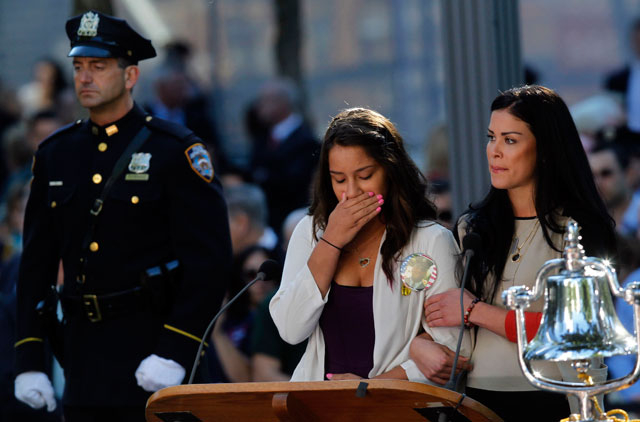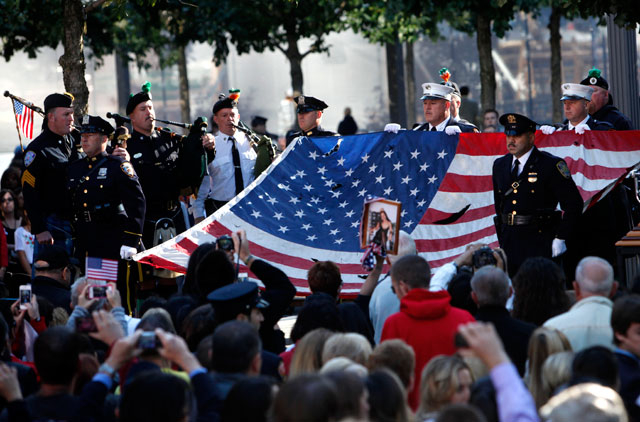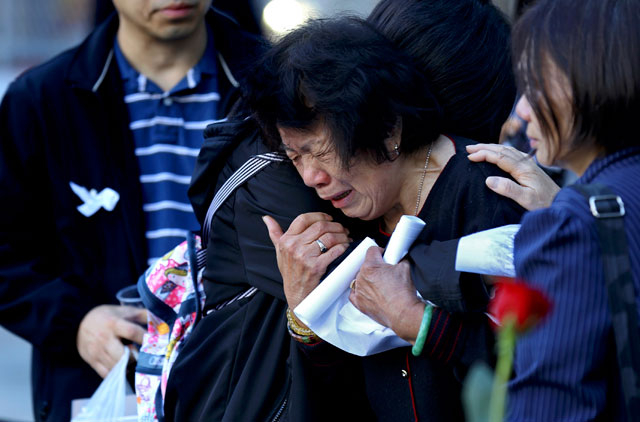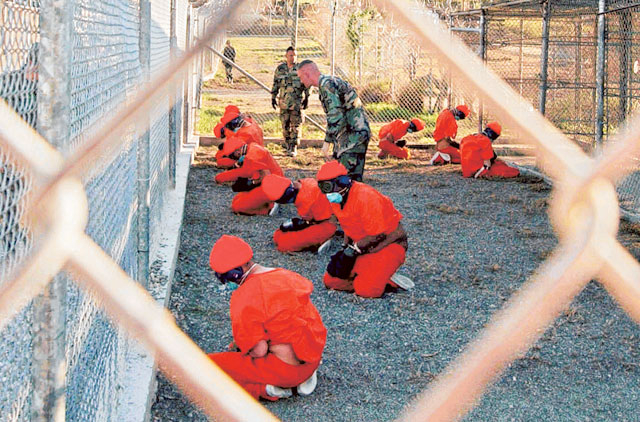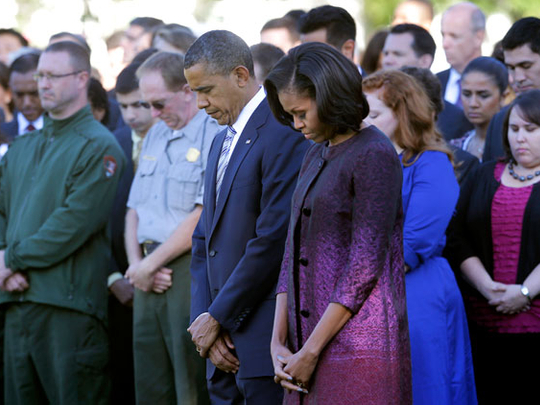
Memories remain raw of 11 years ago on Tuesday when Al Qaida hijackers slammed two passenger planes into the World Trade Center in New York, destroying its iconic Twin Towers, and a third into the Pentagon building in Washington
A fourth plane crashed in a Pennsylvania field when the passengers valiantly overpowered the hijackers.
Almost 3,000 people were killed that day in the worst attacks on American soil.
The 9/11 remembrances unite Americans like almost no other event. According to some polls, 97 per cent of people remember where they were when they heard the news, on a par with John F. Kennedy’s assassination.
But this year, the memorials are fewer, quiter.
Washington National Cathedral, for example, plans to mark the attacks with prayers at its regularly scheduled services, rather than hold a larger commemoration event. In past years, the cathedral hosted a larger commemoration that included presidents and other leaders.
On Tuesday, bagpipes played at the year-old September 11 memorial in New York, with families clutching balloons, flowers and photos of their loved ones bowed their heads in silence at 8:46am, the moment that the first hijacked jetliner crashed into the trade center's north tower.
President Barack Obama and first lady Michelle Obama observed the moment in a ceremony on the White House's south lawn.
Obama said the attacks 11 years ago filled Americans with questions about the origins of terrorism and how America should respond to it.
“The last decade has been a difficult one, but together, we have answered those questions and come back stronger as a nation,” he noted.
But 11 years on, Guantanamo Bay detention centre remains open — with no sign it will close anytime soon. On his first day in office, Obama signed an executive order on its closing — that has been shelved.
“Guantanamo has come to symbolise a systematic failure by the USA to respect human rights in its response to the 9/11 attacks,” said Rob Freer, Amnesty International’s researcher on the USA. “The US government disregarded human rights from day one of the Guantánamo detentions ... this failure continues,”
Amnesty highlights the case of Zayn Al Abidin Mohammad Hussain, more commonly known as Abu Zubaydah, was arrested in March 2002 in Pakistan. He was handed over to the US and held in secret detention at various undisclosed locations by the CIA until 4 September 2006 when he was transferred to Guantanamo Bay.
He was subjected to waterboarding at least 83 times in August 2002. He was also allegedly subjected to years of solitary confinement and incommunicado detention, stress positions, beatings, forced prolonged nudity, sleep deprivation, use of loud music, exposure to cold, prolonged use of shackles, threats, forced shaving, cruel conditions of transfer, and deprivation or restriction of food.
“Today, Abu Zubaydah would appear to be one of the 48 Guantanamo detainees whom the Obama administration said in 2010 it intends to hold indefinitely without criminal trial, although it has not confirmed this,” Amnesty notes. “In the unlikely case that his habeas corpus legal challenge were to be successful, it is not clear where would he go, as he is a stateless Palestinian. The Obama administration has shown itself willing to continue indefinitely holding people at Guantanamo whose detention has been ruled unlawful, but for whom no ‘diplomatic’ arrangement for their release has been found.”


